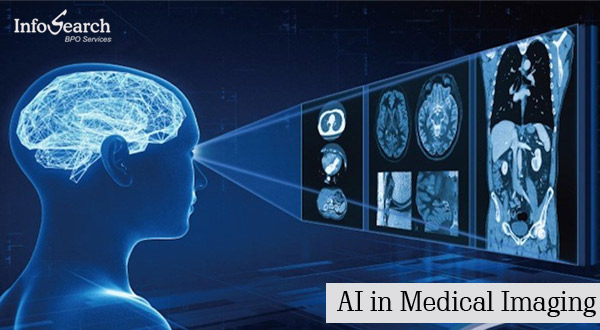
AI Revolutionizes Medical Diagnostics with Advanced Image AnalysisAI Revolutionizes Medical Diagnostics with Advanced Image Analysis Artificial intelligence (AI) is transforming the field of medical diagnostics, revolutionizing the way healthcare professionals analyze medical images for accurate and timely diagnoses. Automated Image Interpretation AI algorithms can now automatically interpret medical images, such as X-rays, CT scans, and MRIs. These algorithms are trained on vast datasets of images, enabling them to identify patterns and abnormalities that may be difficult for human eyes to detect. Improved Accuracy and Efficiency AI-powered image analysis tools significantly improve diagnostic accuracy by eliminating human error and subjectivity. They provide consistent and objective results, which reduces the risk of misinterpretations and false positives. Additionally, AI algorithms can work tirelessly, 24/7, increasing diagnostic efficiency. Early Disease Detection and Monitoring AI’s ability to detect subtle changes in medical images allows for the early detection of diseases. By identifying anomalies before symptoms appear, healthcare professionals can intervene early and provide timely treatment. AI also enables continuous monitoring of disease progression, helping clinicians track patient outcomes and adjust treatment plans accordingly. Personalized Medicine AI-enhanced image analysis helps tailor medical treatment plans to individual patients. By analyzing vast amounts of patient data, including medical images, AI algorithms can predict treatment response and identify the most effective therapies for specific individuals. Remote Diagnostics AI empowers remote diagnostics, making medical expertise accessible to patients in remote areas or with limited access to healthcare. AI-powered telemedicine platforms can analyze images and provide preliminary diagnoses, allowing for timely interventions and reducing the need for unnecessary travel. Examples of AI in Medical Imaging * Cancer Detection: AI algorithms analyze mammograms, chest X-rays, and other images to detect breast cancer, lung cancer, and other malignancies at earlier stages. * Neurological Disorders: AI algorithms help diagnose and monitor neurological conditions such as dementia, Parkinson’s disease, and multiple sclerosis by analyzing brain MRI scans. * Cardiovascular Disease: AI algorithms accurately interpret echocardiograms, CT scans, and MRIs of the heart to detect heart disease and assess its severity. * Pulmonary Disease: AI algorithms aid in the diagnosis and monitoring of respiratory conditions such as asthma, chronic obstructive pulmonary disease (COPD), and lung cancer by analyzing chest X-rays and CT scans. Conclusion AI is revolutionizing medical diagnostics by providing advanced image analysis capabilities. Its ability to automate interpretation, improve accuracy, and facilitate early disease detection empowers healthcare professionals to make more informed and timely diagnoses. As AI continues to evolve, its impact on medical imaging is expected to grow even more profound, transforming healthcare delivery for the benefit of patients worldwide.
Posted inNews